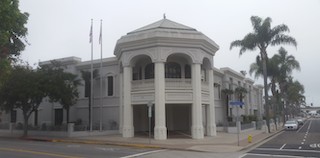Many criminal defense attorneys, especially those from Los Angeles County, will just shake their head and look at the ground when asked how the judges are in Ventura County. Such attorneys may have had an experience that left them rattled and bewildered.
The Reader’s Digest Version: Senate Bill 1437 is not an unconstitutional amendment to Proposition 7 to the California Constitution. It also does not violate Marsy’s Law (also known as the Victims Bill of Rights Act of 2008), Proposition 115 or constitute an unconstitutional violation of the separation of powers.
The following reported decision from the Second Appellate District, in People v. Maria Lissette Urena Bucio, might cause such a resigned shrug from defense counsel. Indeed, the Second District found error in the Ventura Superior Court judge’s ruling that Ms. Bucio’s petition under 1437 was barred because it found SB 1437 to be unconstitutional. The Second District went even further, finding that Ms. Bucio’s petition should have been granted.
The factual background and the 2008 trial court proceedings are important for the reader to know in order to fully appreciate this ruling.
Ms. Bucio aided and abetted her nephew in a robbery which resulted in the death of another during the crime. The Ventura County Superior Court jury hearing the case found Ms. Bucio guilty of robbery and first-degree murder, finding true the allegation that the murder occurred in the course of the robbery under the natural and probable consequences doctrine.
The jury did not find true the allegation that Bucio aided and abetted the robbery with reckless indifference to human life (Penal Code § 190.2(d)).
The judge then sentenced Bucio to 25 years to life for murder, but stayed the five-year sentence for robbery under Penal Code § 654.
Approximately ten years later, in 2018, Senate Bill 1437 became law, revising California’s felony murder rule and allowing those convicted of felony murder, in certain circumstances, to seek resentencing under Penal Code § 1170.95.
 2nd Appellate District Division 6 Ventura
2nd Appellate District Division 6 Ventura
In Bucio’s petition for resentencing, she argued that: 1) “she was not the actual killer; [2)] she did not, with the intent to kill, aid, abet . . . or assist the actual killer; and [3)] was not a major participant in the felony or . . . did not act with reckless indifference to human life.”
The prosecution opposed the petition on grounds that, it argued, SB 1437 is unconstitutional because it conflicts with Proposition 7 and 115, violates the separation of powers and amends the Victim Bill of Rights Act of 2008 (Marsy’s Law).
The trial court judge agreed with the prosecution, finding that SB 1437 “improperly invades the province of the executive branch by effectively granting pardons to defendants who have been convicted and sentenced for felony murder.” This, the reader perhaps needs no reminding, was in Ventura County Superior Court.
After this startling ruling, the Fourth Appellate District upheld the constitutionality of SB 1437 in two companion cases, People v. Superior Court (Gooden) (2019) 42 Cal.App.5th 270 and People v. Lamoureux (2019) 42 Cal.App.5th 241.
Bucio then appealed the Ventura County judge’s ruling to the Second Appellate District, which reversed the trial court judge. The Second Appellate District began its analysis by reviewing the scope and intent of SB 1437, reminding the reader that malice can no longer be imputed to a person solely based on his or her participation in a crime. SB 1437 also amended Penal Code § 189 to restrict or limit application of the felony-murder rule and the natural and probable consequences doctrine.
The Second Appellate District then focused on the trial court judge’s finding on several grounds. First, the Ventura County judge found that SB 1437 unconstitutionally amended Prop 7, also known as the Briggs Initiative, which was adopted by voters in 1978. The Briggs Amendment increased the punishment for first- and second-degree murder and expanded the special circumstances under which a person would be eligible for the death penalty or life without parole. The prosecutor argued that SB 1437 unconstitutionally amends Prop 7 by changing the penalty for murder by indirect means.
The Second Appellate District succinctly dispatched with this tortuous argument: “We are not persuaded by this argument.” It then explained that SB 1437 deals with the elements of murder to reserve the greatest penalties to those with the greatest culpability, drawing a distinction between those who act with the intent to kill (or as a “major participant” in a felony or with “reckless indifference to human life”) and those who do not.
The scope of this article will remain narrowed to the Prop 7 argument and not discuss how the Second District also discredited the arguments that SB 1437 was unconstitutional by conflicting with Prop 115 or Marsy’s Law.
Perhaps fearing that the Ventura Superior Court would next bungle the case further, the Second District then directed it to grant the petition for resentencing for Bucio on the remaining counts.
We were happy to see that Ms. Bucio appealed the ruling on her 1437 motion and did not allow the trial court’s ruling to stand in her way of being resentenced.
The citation for the Second Appellate District Court ruling discussed above is People v. Maria Lissette Urena Bucio (2d App. Dist., 2020) 48 Cal. App. 5th 300, 261 Cal. Rptr. 3d 692.
For more information about Senate Bill 1437 and the new felony murder law, please click on the following articles:
 2nd Appellate District Division 6 Ventura
2nd Appellate District Division 6 Ventura